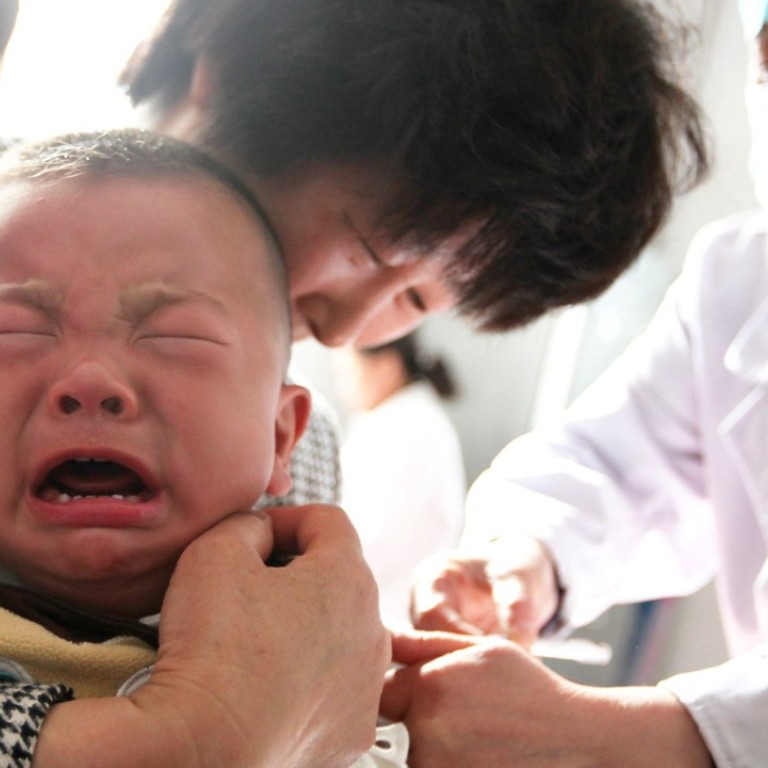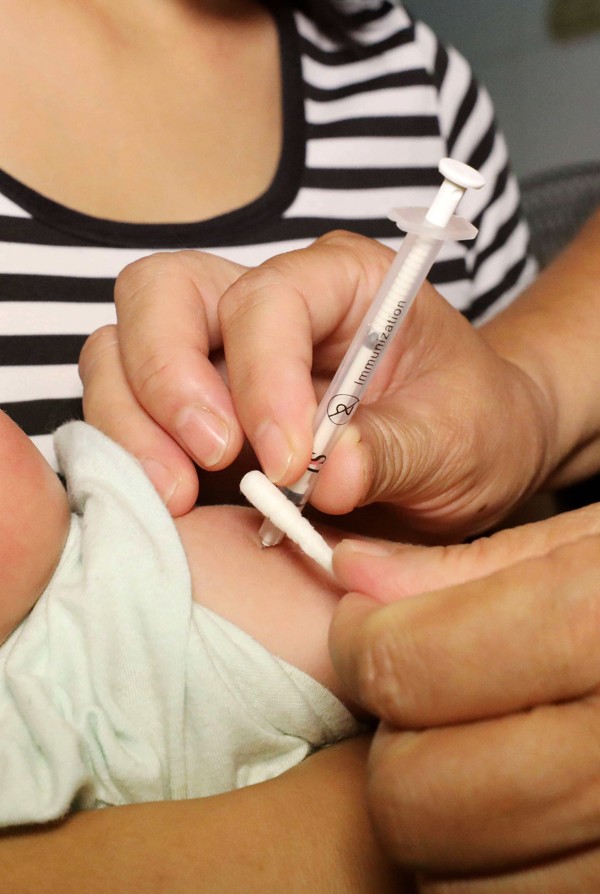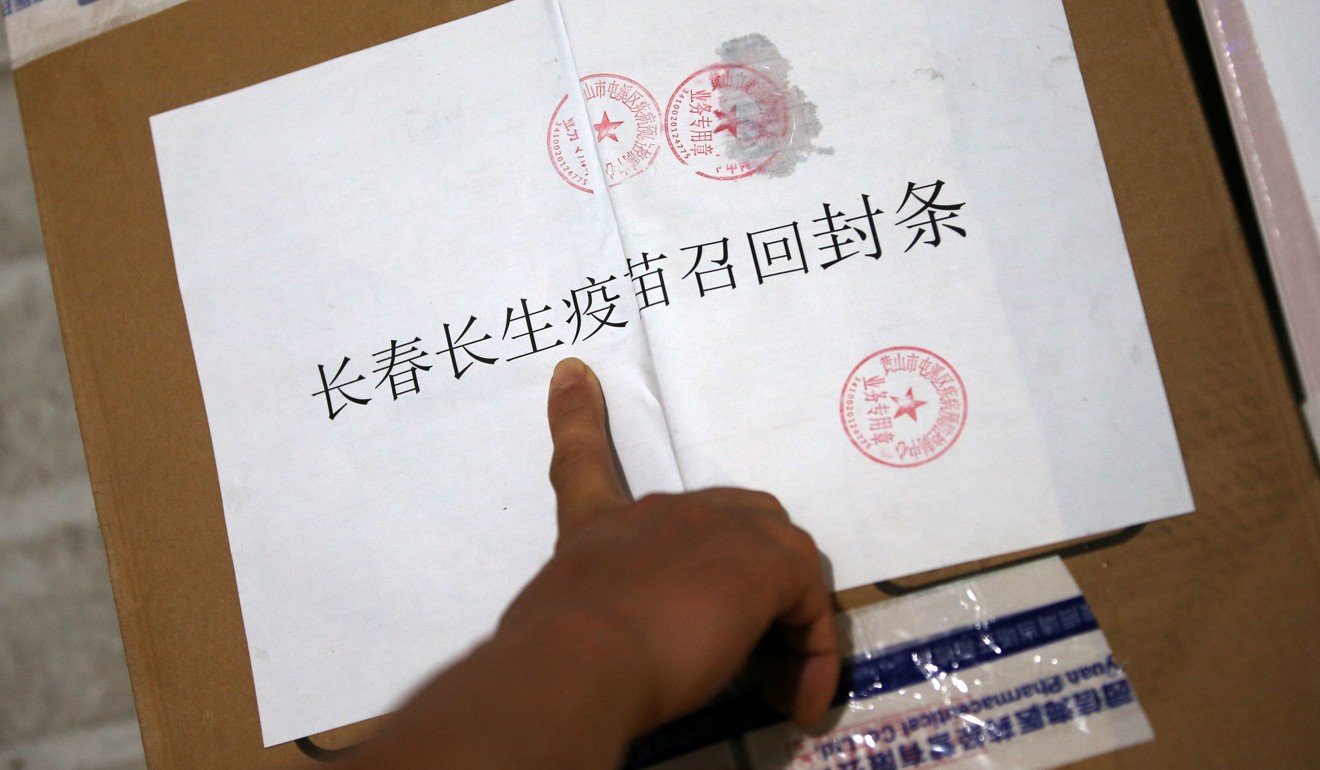
Chinese parents demand answers over ‘dangerous vaccines’
Families unite online in a shared belief that their children have been sickened – and even killed – by injections
For new mother Wang Shixia, there was nothing remotely alarming about getting a compulsory DPT shot for her seven-month-old son at a well-established hospital in China’s coastal province of Shandong.
But little did she realise, the state-sponsored injection three years ago – given yearly to millions of newborns nationwide to prevent diphtheria, whooping cough and tetanus – would nearly claim the life of her son and plunge her family into a nightmare that still haunts them.
As new vaccine scandal grips China, parents say they’ve lost faith in the system
Wang’s child developed a high temperature hours after the jab and his condition soon worsened. Within a fortnight, the infant was in an intensive care unit fighting a persistent high fever, a festering rash, a bone marrow infection and meningitis.
The child survived but continued to need medical treatment every few months in Beijing. The health authorities confirmed that the child’s condition was a result of the vaccine.
Now, with China confronting its worst public health crisis in years, Wang and hundreds of other parents who say their children have been sickened, disabled or killed by vaccinations in years past are demanding answers from the government.
The crisis erupted when the drug authorities announced that Changchun Changsheng Bio-technology, one of the country’s biggest vaccine makers, made about 252,600 substandard DPT vaccines that were given to hundreds of thousands of babies – some as young as three months old.
The company also forged data in the production of about 113,000 rabies vaccines, state drug regulators said.
Vaccine scandal: the Chinese officials who defy disgrace to rise from the ashes of public crises
So far, the listed company has been given a small fine – just 0.6 per cent of its 2017 net profit. Fifteen people, including its chairwoman, have also been arrested, and China’s top leaders have pledged to have a thorough investigation into the “appalling” incident.
But for many parents, this is not enough.
“The bad guys of course should be punished, but what about the children and families who have already been inflicted with so much pain and suffering [by the vaccines]? Don’t we deserve answers and compensation?” Wang said.
The DPT shot given to Wang’s child was made by Changsheng Bio-tech, but was not among the batch of faulty vaccines found by the state drug regulator. According to the US Centres for Disease Control and Prevention, any vaccine can cause side effects, and there is risk – albeit extremely small – of a vaccine causing severe harm and even death.

However, having lost faith in China’s scandal-plagued pharmaceutical industry and the government’s lax regulation on food and drug safety, Wang and others suspect there are more problematic vaccines made by Changsheng Bio-tech and other companies, presenting dangers to their children.
“For us, the most important thing is that such tragedies do not happen again,” said Li Baosheng, a Shandong father who said his son died after a vaccination.
Li’s then eight-year-old son came home with a high fever in 2010 after getting a Changsheng H1N1 flu shot at school. He fell into a coma two days later and stopped breathing. After a fortnight on a respirator followed by two months of treatment at a Beijing hospital, the boy remained in a vegetative state until he died in August, Li said.
“We cannot allow the latest scandal to just fade away after a few days. Similar problems and scandals have occurred again and again in the past few years. It means the government has done nothing to improve regulation and safety control,” he said.
The Changsheng Bio-tech revelations come just two years after health authorities announced that 2 million improperly stored vaccines were sold around the country from an overheated, dilapidated storeroom. A year before that, hundreds of infants in central Henan province were reportedly given expired vaccines, causing two deaths.
As China's vaccine scandal unfolds, anxious parents turn to Hong Kong to get children vaccinated
In 2013, health authorities investigated a vaccine maker after eight infants died in two months following injections of hepatitis B vaccines. And in 2010, journalist Wang Keqin reported claims that unrefrigerated vaccines in Shanxi province killed four children and sickened more than 70 others.
“There are so many victims throughout the country. I’ve been calling for legislation on vaccines since 2010, but to no avail,” Li said.
In the aftermath, nearly 400 parents who say their children are victims of faulty vaccines have formed a group chat in popular messaging app WeChat.
Some urge each other to submit petitions to the State Council via a website set up to collect public feedback until September, while others consider legal action and petitioning Beijing in person.

But Beijing has taken a very hard line against rights activism and dissent in the past few years. In 2008, a group of parents whose children fell ill from milk formula contaminated with melamine were detained by police as they tried to hold a news conference.
Nevertheless, some parents are undeterred.
“There is no use in worrying about that. The knife is already over our neck and we have to speak out, otherwise it only gets worse,” said Shawn, a Chinese father in the southern city of Guangzhou who suspects his son developed epilepsy after a DPT vaccination in 2013.
Shawn said his four-month-old began having seizures after the injection and had to spend more than a week in intensive care.
The cases of Shawn and Li could not be independently verified.
China censors social media posts about vaccine scandal, monitor says
He said he was “pessimistic” that the government would hear their calls to help treat the affected children, given that most Chinese media would not cover their plight.
Censors have also been on the move. As word of the scandal spread online on Sunday and Monday, the Chinese word for “vaccine” became one of the most censored words on Weibo, China’s Twitter-like service. A Shenzhen Media Group reporter said the authorities had issued an order banning coverage of the scandal from Tuesday.
“Let’s be honest, the government hasn’t changed – there is no press freedom, no judicial fairness ... If these [fundamental] rights granted by the constitution can’t even be guaranteed, relying on government-initiated investigations won’t make much of a difference,” Shawn said.

